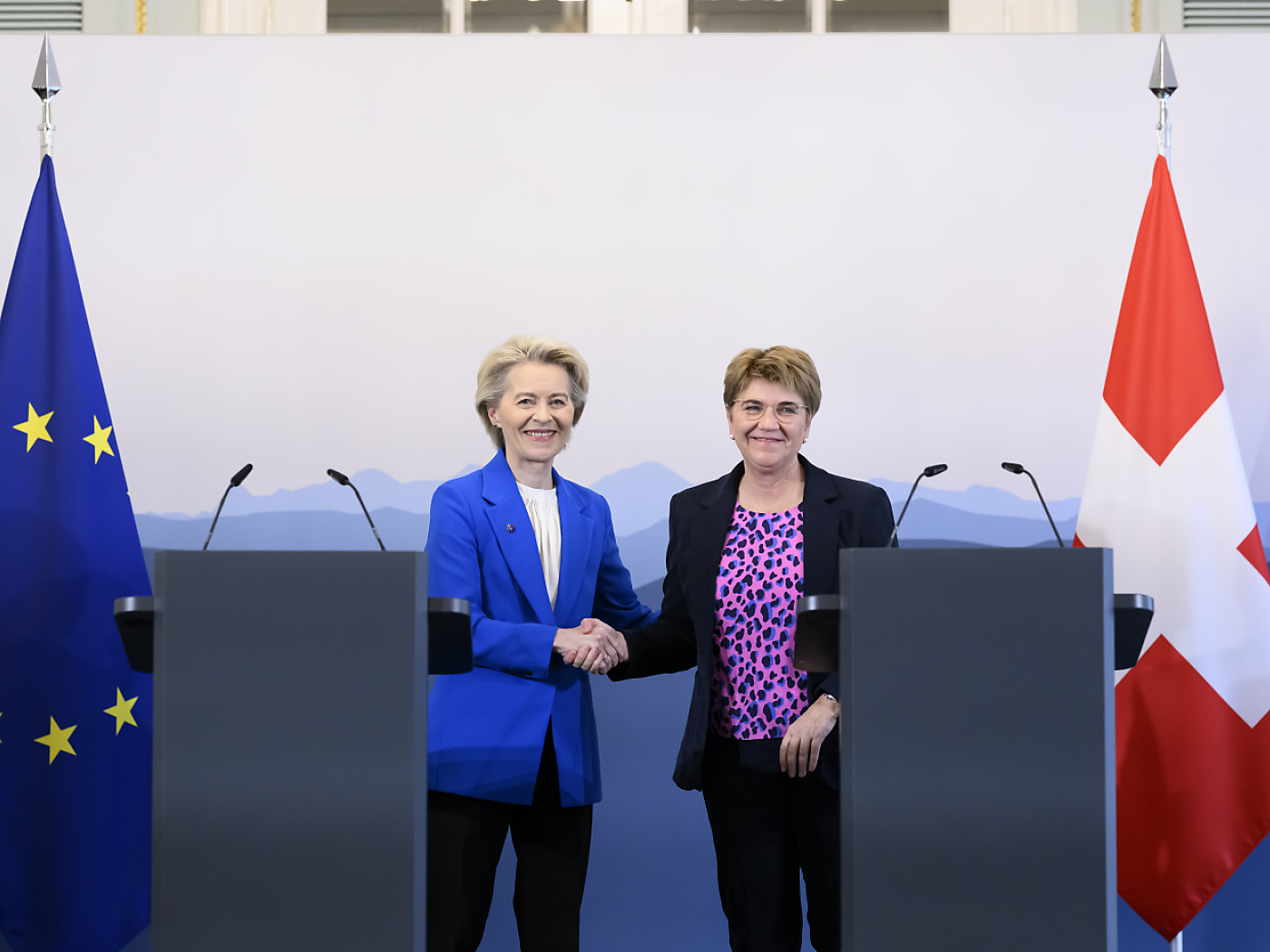
Switzerland Today
Dear Swiss Abroad,
I hope you’re enjoying the end-of-year holiday season – free of indigestion. Between festive meals, maybe you’ve been hitting the slopes or braving an icy dip somewhere. At this time of year, as today’s briefing shows, there’s something for everyone.
Today we’ll also touch on the classic topic of Swiss trains, which although often punctual, are undeniably pricey. The boss of the Swiss Federal Railways has been talking to the media to try to explain why this is the case.
Enjoy the read!

It’s not been an easy end of the year for Swiss Federal Railways, especially when news was announced of huge additional costs for upcoming infrastructure projects. On Friday, Federal Railways boss Vincent Ducrot explained the situation to the press.
Several factors are behind the CHF14 billion ($15.54 billion) hike in infrastructure costs between now and 2035, Ducrot told the Le Temps and Neue Zürcher Zeitung newspapers. “Ten years ago, we had different planning parameters,” he said. New measurement and simulation methods have now led to the adaptation of these planning bases, he explained.
Ducrot also pointed out that rail projects were planned without any financial reserves. In addition, many things were unknown when plans were drawn up. “For example, we’ve had to incorporate a European standard to modify braking curves, as well as apply the law on equality for people with disabilities,” Ducrot said. Platforms also need widening to comply with rules on passenger flow.
However, all these measures should at least enable the Federal Railways to implement its 2035 plans. These include a major expansion of services, with new quarter- and half-hourly timetables on around 60 routes and a 20% increase in the number of seats. The company also wants to respond better to a growing number of leisure travellers, for example by offering specific trains for skiers.
- Read the interview in Le TempsExternal link (French, paywall) or the NZZExternal link (German, paywall)
More

The Office of the Attorney General (OAG) of Switzerland has closed an investigation into the death of a Swiss diplomat in Iran in 2021, Tamedia newspapers revealed today. After three and a half years of inquiries, the OAG reckons the probable cause of death was suicide.
To recap: on the morning of May 4, 2021, the deputy director of the Swiss Embassy’s Foreign Interests SectionExternal link in Iran was found dead outside her apartment building in Tehran. That same day, a local emergency services spokesman said suicide had been ruled out. Suspecting homicide, the OAG opened criminal proceedings against an unknown person.
Following an initial autopsy in Iran, the diplomat’s body was repatriated to Switzerland for a second investigation. Here, doctors faced an unusual situation: the body’s brain, heart, kidney and parts of the spinal column were missing. The exact cause of death could therefore not be determined, but there were no signs of violence.
However, signs to support the theory of suicide emerged during the investigation. In particular, the diplomat made several phone calls on the night of her death and left a handwritten note about what was to happen after her death. In its decision to close the case, the OAG however concluded that initial suspicions of homicide could not be confirmed.
- Read the Tamedia report in 24 HeuresExternal link (French, paywall) or Der BundExternal link (German, paywall)

Like many, you may be taking advantage of the festive season to go skiing. Thanks to abundant snowfall, resorts in the Swiss Alps are currently seeing a big influx of tourists. But they also face staff shortages.
For eight years, the resort of Les Paccots in canton Fribourg has been unable to open over the Christmas holidays due to a lack of snow. So for once, when the white gold finally arrives, it’s not easy to find staff. “We have a lot of volunteers and auxiliary staff. As we can’t always offer them a full-time job, we turn to young or retired people,” says Olivier Berthoud from the resort’s board of directors.
That said, problems this season are not as acute as in the past two years. Lionel Fontaine from Hotelis, an agency specialising in recruitment for the hotel and catering industry, told the RTS public broadcaster that the situation is no longer one of a “major shortage”.
The situation is improving thanks not just to the arrival of a new generation of local workers, but also reinforcements from abroad. To meet the needs of resorts, Fontaine says he has to look beyond Switzerland’s borders: “we’re seeing more and more workers from France, from Italy, and – for German-speaking Switzerland – from Austria and Germany”.
- Read the article on rts.chExternal link (French)

Picture of the day
If sliding down snowy slopes isn’t your thing, you can always turn to an increasingly popular sport: cold-water swimming. Despite water temperatures of just 7°C, some 80 swimmers covered a distance of 30 metres at an annual event held in Lake Lugano, canton Ticino, yesterday. Into your togs!
Translated from French by DeepL/dos

In compliance with the JTI standards
More: SWI swissinfo.ch certified by the Journalism Trust Initiative








